On a cold drizzling morning in Fuka village, Munya local government area (LGA), Niger State, three-day-old Oscar has just been bathed and dressed by his grandmother. He looks healthy in his sweater and lies comfortably in his mother’s arms. Twenty-three-year-old Mary, his mother, had just applied chlorhexidine gel around his unbiblical cord area. “It is one of the items inside the bag they gave me at the hospital,’’ she says, holding up the “Mama Kit’’ that is given free of charge to pregnant women who give birth at Fuka’s primary health centre (PHC). It is one of the initiatives implemented by a non-governmental organisation, RAiSE Foundation, with support from the TY Danjuma Foundation (TYDF) to ensure that expectant mothers in some communities in Niger State have access to the essential items they would need when giving birth.
An Outbreak Births a PHC
Most of the people who live in Fuka, like in most Nigerian villages, are farmers. The small community is about 20 miles from Shiroro, the location of one of the country’s major hydroelectric dams. It is surrounded by small rivers and about 12 other small settlements. In late 2015, Fuka experienced a devastating Lassa fever outbreak that killed 17 people. The high mortality rate was attributed to the reluctance of the community to report the outbreak early due to some traditional beliefs and the unavailability of a health facility at that time.
During a visit to the community in the aftermath of the outbreak in January 2016, then Minister of Health, Professor Isaac Adewole directed the National Primary Healthcare Development Agency (NPHCDA) to complete the proposed PHC in the village, which was originally initiated by the Millennium Development Goals (MDGs) office in the Goodluck Jonathan Administration. The facility was finally completed in August 2017.
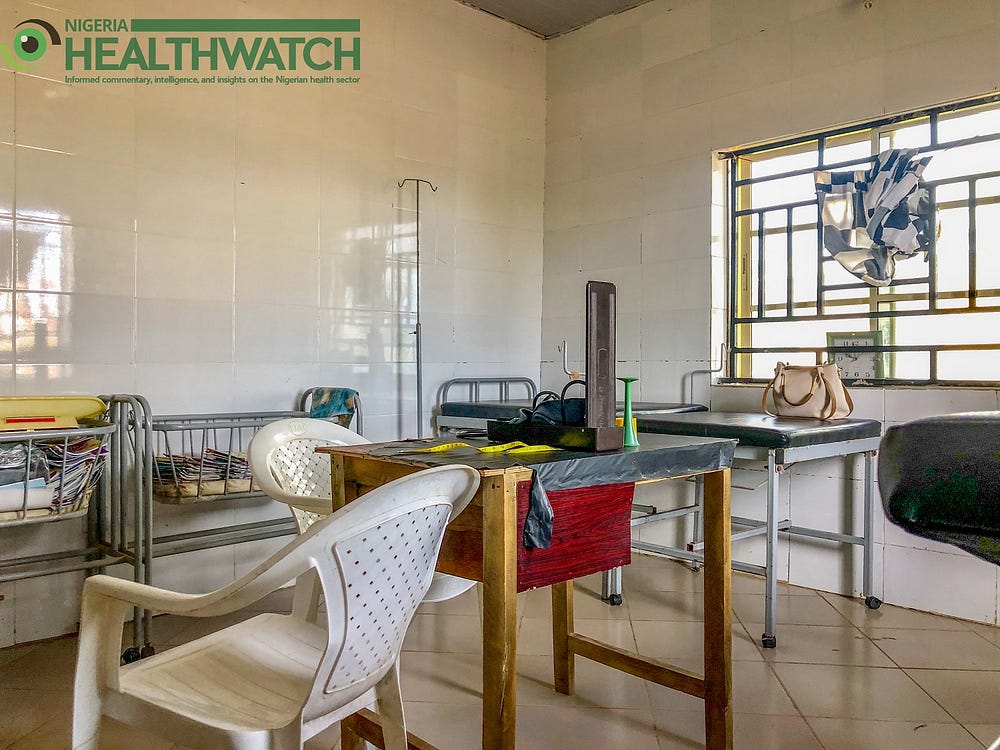
Taking the news to every home
Mr. Ali Saidu, the in-charge of the PHC, said getting Fuka community members, especially women, to patronise the facility was a huge task after its completion. “We were having zero antenatal visits and deliveries in the beginning,’’ he said, attributing the reason for the low usage of the facility to the fact that the local community was unfamiliar with the benefits of using a health facility and so they did not appreciate the importance of attending antenatal sessions or giving birth in a health facility. Health workers began going from house to house to sensitise the community and also organised monthly sensitisation outreaches to settlements around Fuka community. At every point, they placed emphasis on the advantages of pregnant women attending antenatal sessions and giving birth at the facility and gradually usage of the health facility increased.
The presentation of mosquito nets from the National Malaria Control Program to women who came for antenatal visits helped boost the efforts of the health workers. The bodies of water surrounding Fuka makes it prone to mosquito borne diseases especially malaria. The nets provided some protection for the pregnant women and their families against the disease and that further encouraged them to patronise the facility for antenatal services. Since the beginning of 2018, Fuka PHC has witnessed a steady increase in antenatal attendance by women, from about 10 in January 2018 to 35 by May 2019, according to Mrs. Ngozi Anyawou, the matron in charge of the facility.
Kitted for delivery; a game changer for mothers
When families cannot afford health facility bills, it affects their decision to seek care. This is one of the three delays hindering women from accessing the maternity care they need at the time they need it. Nigeria contributes significantly to global maternal mortality rate and less than 1% of the citizens are covered by health insurance. As a result, affording the cost of a facility birth is a barrier to pregnant women having access to skilled health workers when giving birth, particularly in rural communities. Apart from the hospital charges, patients pay for drugs and consumables needed for the delivery. Even though women in Fuka and nearby settlements don’t pay for delivery at the PHC, they had to pay for drugs and other consumables. Sometimes, a family member has to travel to the nearby towns of Gwada, Kafin-koro or Minna which are many kilometres away to get the items needed for childbirth, especially during emergencies.
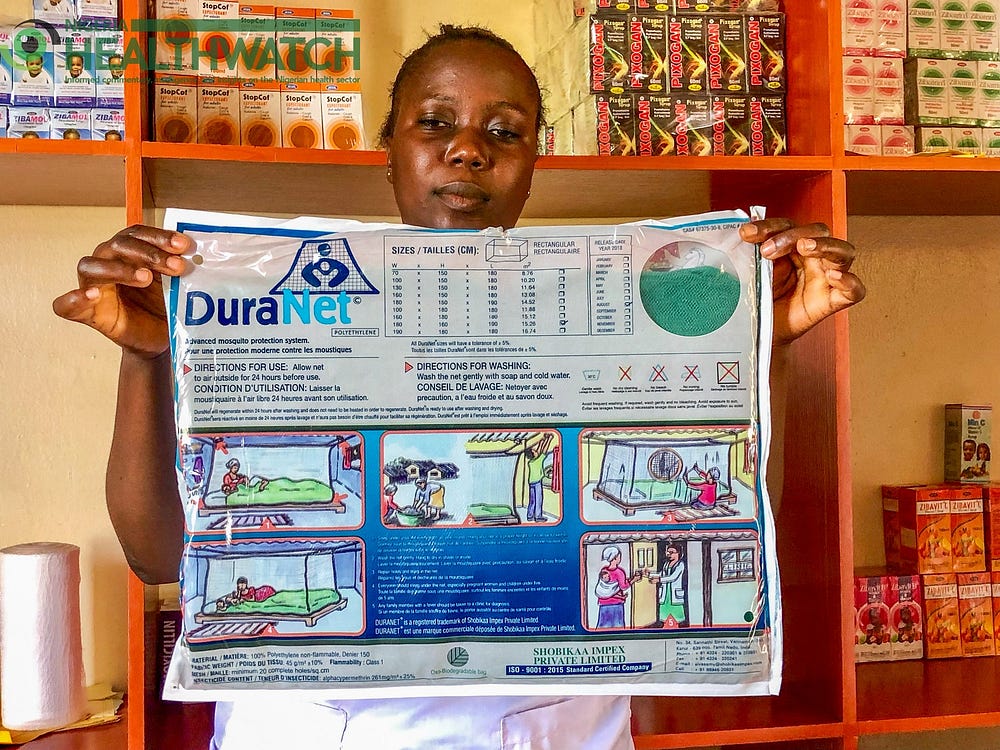
The situation is improving with the introduction of the ‘Mama Kit’ by RAiSE Foundation at the PHC. The “Mama Kit” is a hand bag containing essential delivery drugs such as misoprostol and chlorhexidine, as well as commodities like baby pads, cotton wool, and hand gloves. The kit is given free of charge to women who come to deliver their babies at the PHC. It has provided some form of financial relief for expectant women and their families, helped to prevent infections in mothers and newborns and as has also reduced delays in the delivery process, caused by the unavailability of some of the items in the kit.
Mother of two Asmau Aminu gave birth to her second baby at the PHC in the first week of June, after attending antenatal classes at the clinic. The availability of the Mama Kit prevented a repeat of what her family experienced during her first delivery five years ago at another health facility in Kafin-koro, about 18 kilometres from Fuka. Her mother-in-law said they spent a lot of money on drugs and consumables and Aminu’s husband travelled out of town to buy some of the items required.
Facility deliveries are also increasing, said Mr. Saidu. Before the use of the delivery kits, they had an average of eight deliveries every month, but now the number stands at 15. “We have never recorded more than 10 deliveries before, but last month we recorded fifteen and we believe it is because of this kit’’ an excited Saidu said.
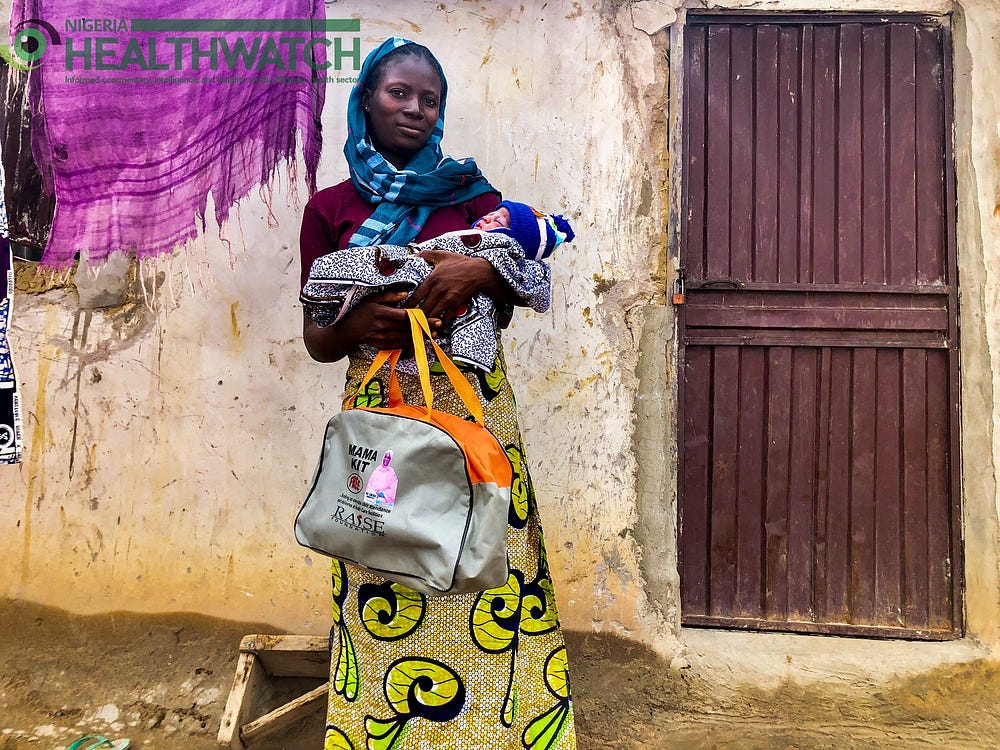
Solving the movement challenge
Inadequate transport infrastructure like roads and vehicles to enable prompt and timely movement of pregnant women from their homes to health facilities during labour is common in many rural communities across Nigeria. Fuka village is not an exception, as women in labour, occasionally have to be carried on foot by family members to the PHC. The situation is dire for women living in settlements surrounding the village, according to district head Alhaji Muhammad Lawal Doma, who says some women are carried over rivers to get to Fuka. “Many have delivered on the road and some have lost their lives on the road as well,’’ Doma said. `
Thankfully the people of Fuka and environs now have an emergency tricycle ambulance that is available at every time of the day, to carry pregnant women from their homes to the PHC when they are about to give birth. The emergency tricycle was donated by RAiSE Foundation with funding from TYDF. It is a replica of the usual motor ambulance, designed to provide protection, confidentiality and comfort for expectant women.
It is also fully furnished to cater for women during emergencies as it is equipped with a bed, a seat for the health worker, first aid kit, a crash cart and oxygen. It is kept at the PHC which also operates for 24-hours and has a devoted volunteer driver. When a woman goes into labour, a call is made to the traditional leader who in turn informs the PHC in-charge and the tricycle is immediately sent to the home of the expectant mother together with a health worker to bring the woman to the health facility free of charge. Community members can also call a dedicated phone line at the PHC to request for the emergency tricycle ambulance.
From the end of April 2019 when the tricycle was donated, the PHC has used it for the emergency transportation of four women from different settlements who all delivered safely at the PHC, including one woman who was already bleeding, according to Mr. Saidu. He couldn’t hide his joy while sharing the stories of negative outcomes that were averted due to the new transportation system for pregnant women.
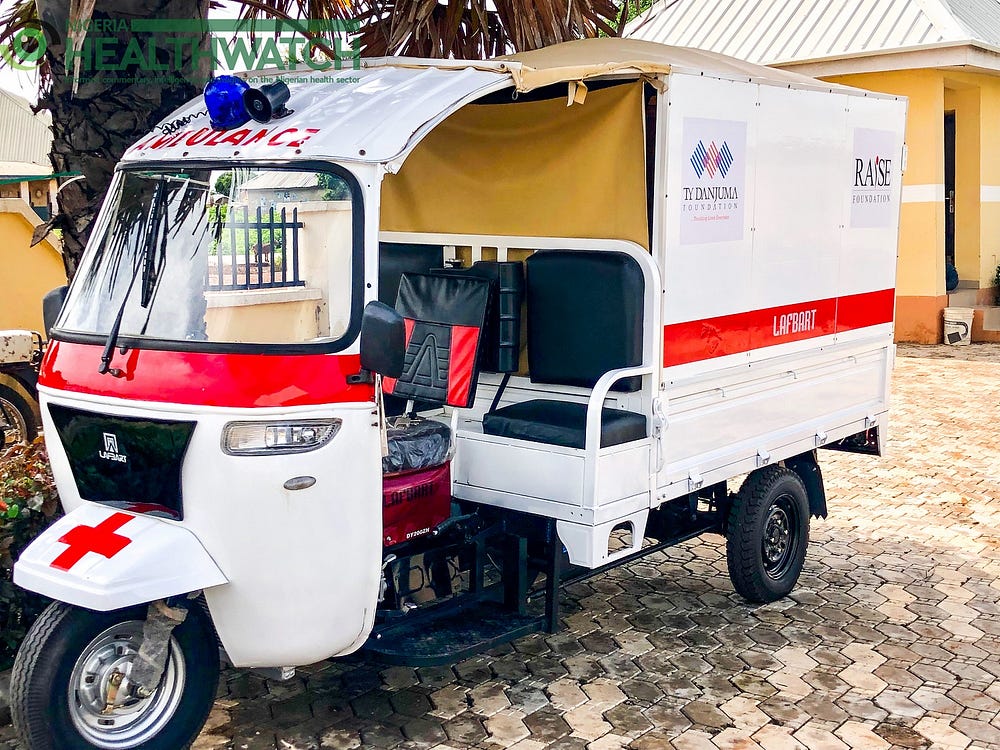
Consolidating Gains
There is no doubt Fuka village is beginning to stand on its own feet after the deadly Lassa fever outbreak four years ago, thanks to the multiple interventions it has received. The community must, however, make sure its women make maximum use of these initiatives, especially the emergency tricycle ambulance which could even benefit more women living in settlements outside the main village. The PHC must strengthen its collaboration with community leaders and if possible, carry out outreaches in nearby settlements to create awareness about the ambulance. They must also impress on the Munya local government to employ the volunteer ambulance driver to motivate him.
Efforts must be made towards a sustainable maintenance plan for the ambulance, as presently there are no assigned funds that could be used for its servicing and repairs when the need arises. It is presently fuelled by the health facility and even though that is working now, it may not be sustainable in the long term when the ambulance is used more frequently as more people become aware of it. The health facility and community leaders need to work out ways to request for the ambulance in case of mobile service failure to avoid delays and complications for women, if the traditional leader or PHC cannot be reached.
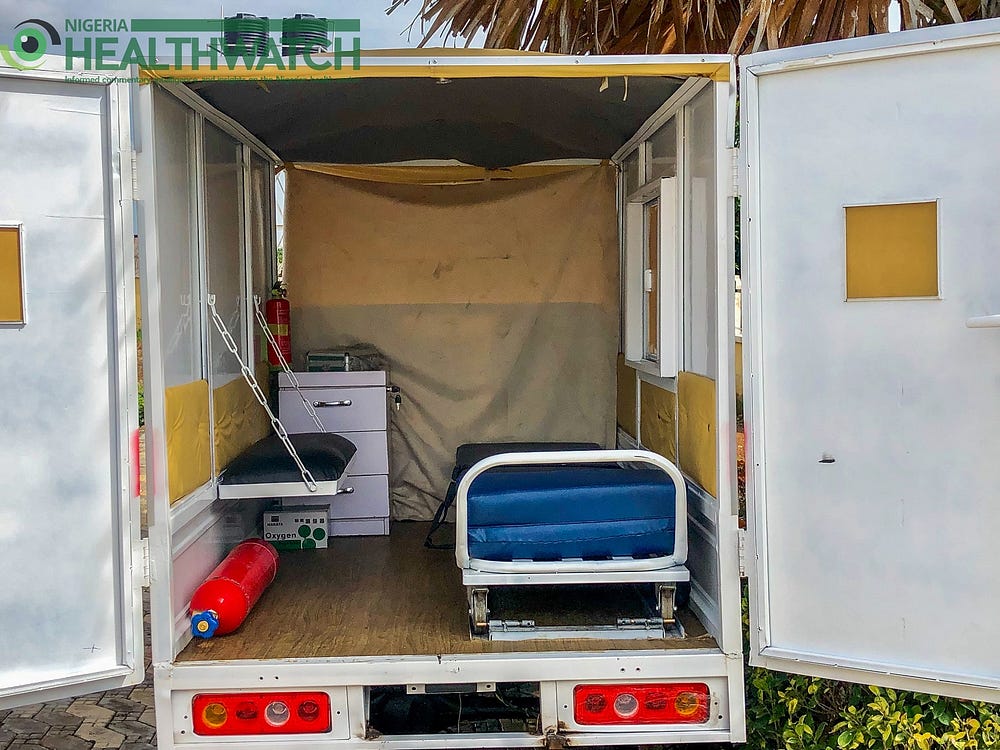
Niger State government should learn from these interventions and leverage on its recently launched state contributory healthcare scheme to sustain and scale up maternity care services like the ones in Fuka throughout the state, so that women in rural communities in the state can enjoy the benefits Mary, Asmau Amina and other women in Fuka are enjoying.


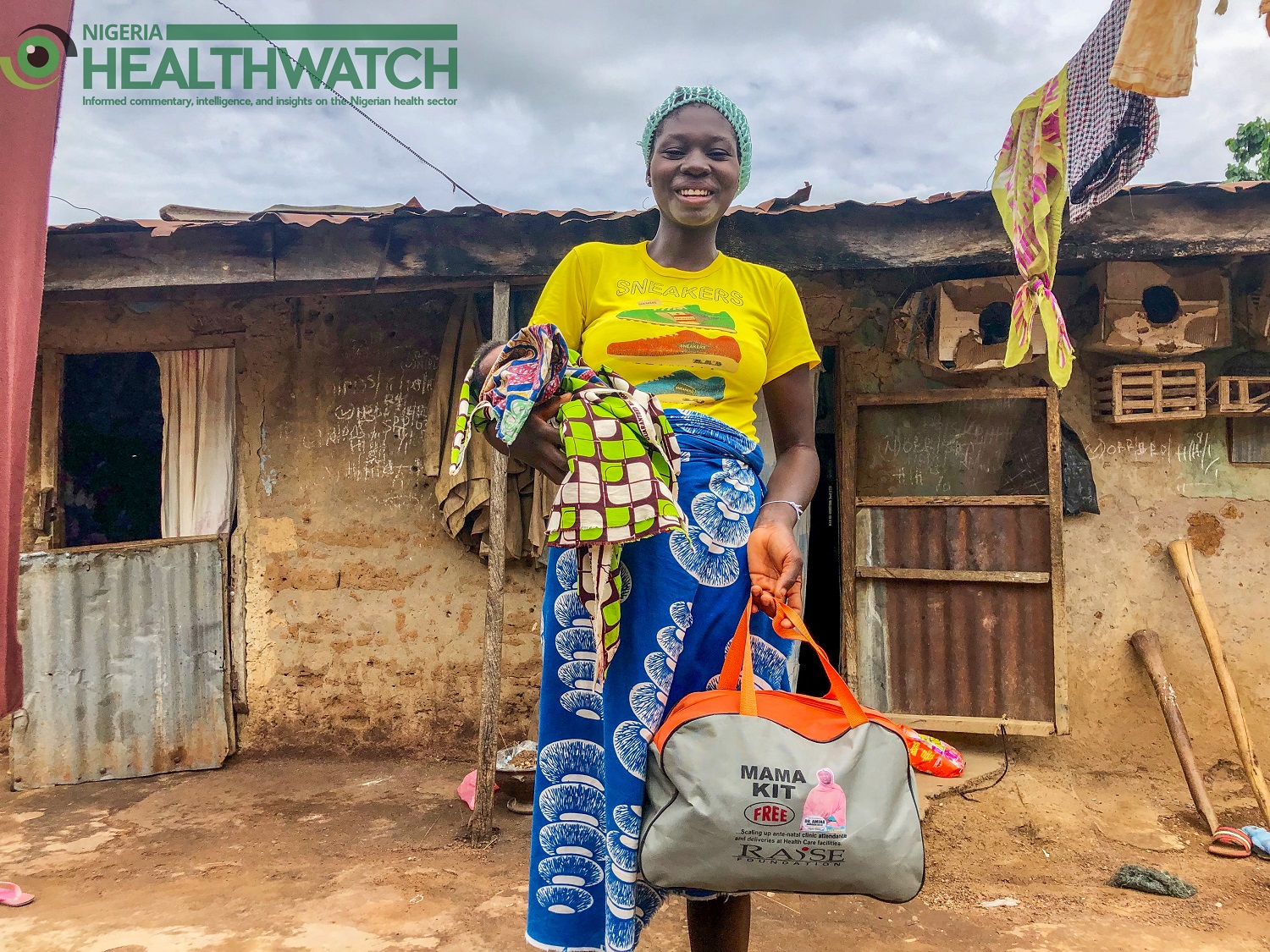
Great job Bashar, for unveiling the beauty of Fuka facility and how it has improved the health health outcomes of the people of the area. I would also employ you and your team to take a trip to this same Niger state specifically to Maito in Wushishi LGA and see what is happening there. The facility is totally invested by bats and that has been the situation for years now. A community members has to donate one room in his flat which is used as labour room.